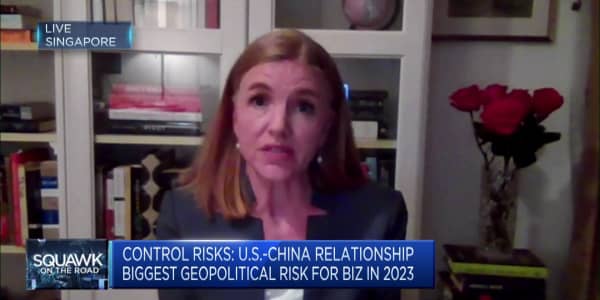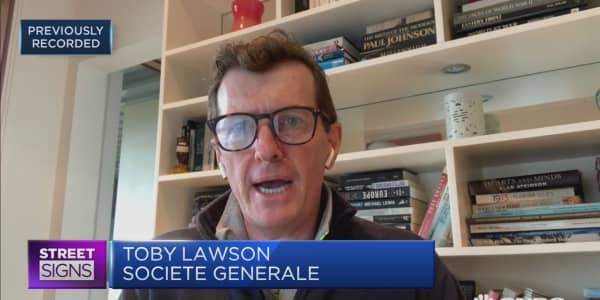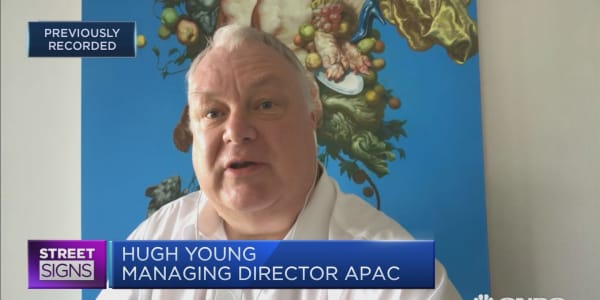A holy man on a mission
Rock star Pope Francis' U.S. tour culminates in his speech at the United Nations on Friday. Throughout his tour, the pope has taken on some of the biggest global risks, highlighting his views on how to save the world from its gravest threats and its own worst impulses.
The pope's vocal stance on social, economic and diplomatic issues has been on full display during his trip through the Americas and his address to Congress on Thursday. Since first elected as the 266th Supreme Pontiff by the papal conclave some two and a half years ago, Pope Francis has used the position as a springboard for tackling global crises, largely breaking with papal tradition in the process. Climate change, income inequality, the European migrant crisis, warfare, criminal justice and social and religious tolerance are among the topics that have led many people to remark, "That's one cool pope!"
"All of us are quite aware of, and deeply worried by, the disturbing social and political situation of the world today," Pope Francis told Congress on Thursday. He later said, "We are asked to summon the courage and the intelligence to resolve today's many geopolitical and economic crises."
Here's a look at some of the words and deeds of Pope Francis as he addresses 10 of the world's biggest problems.
—Mary E. Keefe, special to CNBC.com
Posted 25 September 2015
Ending the Cold War, again
Perhaps his largest diplomatic achievement thus far has been his assistance in normalizing U.S.-Cuban relations. Playing a behind-the-scenes role in the negotiations last year, the pontiff secretly mediated talks between the two estranged countries, which have been at a standstill for more than 50 years. Upon arrival to Havana's José Martí International Airport last weekend, Pope Francis noted that the negotiations "fills us with hope" and cited it as an "example of reconciliation for the entire world."
Early in his papacy, the pontiff weighed in on the Syrian war, sending a letter to Russian President Vladimir Putin prior to the 2013 G20 Summit in St. Petersburg, encouraging all the leaders present to "lay aside the futile pursuit of a military solution."
He told the U.S. Congress, "Being at the service of dialogue and peace also means being truly determined to minimize and, in the long term, to end the many armed conflicts throughout our world. Here we have to ask ourselves: Why are deadly weapons being sold to those who plan to inflict untold suffering on individuals and society? Sadly, the answer, as we all know, is simply for money: money that is drenched in blood, often innocent blood. In the face of this shameful and culpable silence, it is our duty to confront the problem and to stop the arms trade."
Making peace in the Middle East
Some of Pope Francis' diplomatic efforts have had mixed results. After meeting with Israeli President Shimon Peres and Palestinian President Mahmoud Abbas during a trip to the Holy Land in 2014, Pope Francis attempted to reignite Mideast peace talks after the U.S.-led negotiations foundered.
Both President Peres and President Abbas accepted an invitation to the Vatican by the pontiff and, as a sign of peace, planted an olive tree together in the Vatican's gardens in June 2014, accompanied by an "Invocation for Peace" by Pope Francis. Weeks later the deadliest violence in years erupted in the Gaza Strip, a significant setback to any sort of peace negotiations.
A further strain came in June of this year, when the Vatican signed a treaty that signified the religious body's recognition of the State of Palestine, a move heavily criticized by the Israeli Foreign Ministry.
A migrant crisis that requires an act of every person
Just over half of Syria's 23 million people have been displaced since the war began in 2011, with a total of 381,000 refugees—from Syria as well as other war-torn and economically ravaged nations in the Middle East and Western Africa—reaching Europe this year alone.
Reacting to the migrant crisis earlier this month, Pope Francis called on European religious leaders to take action: "Every parish, every religious community, every monastery, every sanctuary of Europe, take in one family."
Speaking to the U.S. Congress about refugees, he said, "Our world is facing a refugee crisis of a magnitude not seen since the Second World War. This presents us with great challenges and many hard decisions." The pope then invoked a classic piece of scriptural advice, saying, "Let us remember the Golden Rule: 'Do unto others as you would have them do unto you.'"
The Vatican itself will be helping two refugee families, who will be taken in by Vatican parishes.
While the civil war in Syria has only escalated—giving rise to the migrant crisis—Pope Francis reiterated his message of finding a peaceful resolution to the conflict last week: "We need to find a solution, which is never a violent one, because violence only creates new wounds."
Climate change: A principal challenge for humanity
Pope Francis has, to some surprise, taken up the polarizing topic of climate change, starting with his landmark encyclical, "Laudato Si."
In the letter, which was released in June, the pontiff stated, "Climate change is a global problem with grave implications: environmental, social, economic, political and for the distribution of goods. It represents one of the principal challenges facing humanity in our day."
The letter discusses dirty air, polluted water, industrial fumes, toxic waste, rising sea levels, extreme weather and natural disasters and how these changes are affecting the poorest segments of society.
The pope's climate-change sentiments were echoed in comments made during his speech at the White House earlier this week and during his unprecedented papal address to the joint session of Congress. "Now is the time for courageous actions and strategies, aimed at implementing a culture of care and an integrated approach to combating poverty, restoring dignity to the excluded, and at the same time protecting nature," Pope Francis told members of Congress.
Against a 'crude and naive' faith in money
Throughout his tenure as pontiff, Pope Francis has stressed the importance of helping the poor and rejecting the idolatry of money, which has left him at odds with the tenets of a free-market economy. And he has not been above taking some below-the-belt shots at capitalism, calling the pursuit of money "the dung of the devil."
In his apostolic exhortation "Evangelii Gaudium," the pontiff offers some of his more pointed critiques of capitalism, taking umbrage with trickle-down economic theory: "Some people continue to defend trickle-down theories which assume that economic growth, encouraged by a free market, will inevitably succeed in bringing about greater justice and inclusiveness in the world. This opinion, which has never been confirmed by the facts, expresses a crude and naïve trust in the goodness of those wielding economic power and in the sacralized workings of the prevailing economic system."
The pope reiterated these sentiments during his trip to Bolivia in July.
In his speech to Congress, though, the pope did remark on the positive attributes of a free market economy—some think he softened his economic message in the belly of the capitalist beast. "The fight against poverty and hunger must be fought constantly and on many fronts, especially in its causes. I know that many Americans today, as in the past, are working to deal with this problem."
A papal plan for economic redistribution
Pope Francis may be able to soften his attacks on money because his more acute target is inequality in a global "economy of exclusion."
Pope Francis took to Twitter last year to first express his feelings about income inequality, writing, "Inequality is the root of social evil."
His ongoing effort to help the poor and those on the margins of society was reaffirmed when he noted that "equitable economic and social progress can only be attained" through the "legitimate redistribution of economic benefits."
Pope Francis told Congress about inequality, that "it goes without saying that part of this great effort is the creation and distribution of wealth. The right use of natural resources, the proper application of technology and the harnessing of the spirit of enterprise are essential elements of an economy which seeks to be modern, inclusive and sustainable." He added, "Business is a noble vocation, directed to producing wealth and improving the world. It can be a fruitful source of prosperity for the area in which it operates, especially if it sees the creation of jobs as an essential part of its service to the common good."
Religious tolerance and inclusion
Pope Francis has also emphasized religious tolerance, stating in an address during a visit to Turkey, "Fanaticism and fundamentalism, as well as irrational fears which foster misunderstanding and discrimination, need to be countered by the solidarity of all believers."
He told the U.S. Congress that no religion is free of these risks. "Our world is increasingly a place of violent conflict, hatred and brutal atrocities, committed even in the name of God and of religion. We know that no religion is immune from forms of individual delusion or ideological extremism. ... A delicate balance is required to combat violence perpetrated in the name of a religion, an ideology or an economic system, while also safeguarding religious freedom, intellectual freedom and individual freedoms. But there is another temptation which we must especially guard against: the simplistic reductionism which sees only good or evil; or, if you will, the righteous and sinners."
Leading by example and breaking with papal tradition during the annual foot-washing ceremony on Holy Thursday two years ago, Pope Francis washed the feet of a female Muslim prisoner at Casal del Marmo Detention Center in Rome. (Previously, the honor was reserved for men.)
Social tolerance and inclusion
His message of tolerance and inclusion has also extended to the LGBT community, a move historically at odds with Catholic doctrine. On his trip back from Brazil in 2013, Pope Francis caused a stir when a reporter asked him about gay priests in the clergy, to which he responded, "If someone is gay and he searches for the Lord and has good will, who am I to judge?" He continues to broadcast a message of inclusion, even breaking bread with gay and transgendered prisoners this past spring.
Last month, after "Piccolo Uovo" ("Little Egg"), an Italian children's book that featured same-sex parents was banned in schools by the new mayor of Venice, Pope Francis again went against convention and weighed in on the book after the author sent him a copy. He responded with a letter via a Vatican official: "His holiness is grateful for the thoughtful gesture and for the feelings which it evoked, hoping for an always more fruitful activity in the service of young generations and the spread of genuine human and Christian values."
The pontiff's message of tolerance and inclusion was reinforced during his speech at the White House on Wednesday afternoon, where he advised "rejecting every form of unjust discrimination."
Criminal justice reform
Along with his attention to the needs of the poor, Pope Francis has also campaigned vigorously for criminal justice reform. He has called for "the improvement of prison conditions in the respect of the human dignity" and for "the abolition of the death penalty," a topic he again opined on during his address to Congress.
The pope told Congress, "This conviction has led me, from the beginning of my ministry, to advocate at different levels for the global abolition of the death penalty. I am convinced that this way is the best, since every life is sacred, every human person is endowed with an inalienable dignity, and society can only benefit from the rehabilitation of those convicted of crimes. Recently my brother bishops here in the United States renewed their call for the abolition of the death penalty. Not only do I support them, but I also offer encouragement to all those who are convinced that a just and necessary punishment must never exclude the dimension of hope and the goal of rehabilitation."
He regularly meets with prisoners, recently stopping at the Centro de Rehabilitación Santa Cruz Palmasola in Santa Cruz, Bolivia, in July. This Sunday he is scheduled to visit the Curran-Fromhold Correctional Facility in Philadelphia. In March 2015 he met with inmates of the Giuseppe Salvia Detention Center in Naples, Italy (pictured here).
Church corruption and scandal
The message Pope Francis is attempting to spread will not go far if the credibility, or finances, of the Church are strained. Speaking to 400 U.S. bishops, Pope Francis said, "The world is already so torn and divided, brokenness is now everywhere. Consequently, the Church—the seamless garment of the Lord—cannot allow herself to be ... broken or fought over."
Pope Francis has tackled Church corruption, which ranged from financial corruption to the fallout from the sexual abuse scandal. The pontiff set up a new department, the Secretariat for the Economy, to put the Vatican's financial house in order and has created a Church tribunal to judge bishops who fail to shield children from sexual abuse, as well as a 17-member panel commission on abuse.
In the wake of this top-to-bottom reform, there have been casualties of members of the old regime, like Bishop Franz-Peter Tebartz-van Elst of Limburg, Germany, who resigned after a suspension by the Vatican, accused of spending more than €31 million on his official residence.
Leading by example, Pope Francis has stressed frugality in his personal life, moving out of the Apostolic Palace into a small suite at the Vatican Hotel Casa Santa Marta and ditching his predecessor's famous bespoke red loafers for a pair of understated black shoes. While the "Popemobile" receives a lot of attention during papal tours, it is the modest Fiat he has been traveling across the U.S. in that has caught as much attention.
The pope did receive some criticism for his comments to U.S. bishops, which some interpreted as a defense of the U.S. Church's handling of the sexual abuse scandals. He told the bishops, "I am also conscious of the courage with which you have faced difficult moments in the recent history of the Church in this country without fear of self-criticism and at the cost of mortification and great sacrifice." He also remarked to the bishops, "I have supported your generous commitment to bring healing to victims—in the knowledge that in healing we too are healed—and to work to ensure that such crimes will never be repeated."
On his last day in the U.S., Pope Francis met with victims of church sexual abuse and, before boarding his place, he specifically cited bishops as being among the church officials who had covered up the crimes. "When a priest abuses, it is very grave because the vocation of the priest is to make that boy, that girl grow toward the love of God. For this reason, the church is strong on this and one must not cover these things up. Those who covered this up are guilty. Even some bishops who covered this up," Pope Francis said during his final press conference in the U.S.




